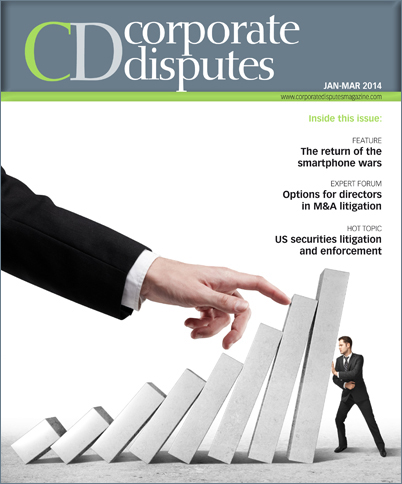OPTIONS FOR DIRECTORS IN M&A LITIGATION
CD: Could you provide a brief overview of recent trends in litigation arising from M&A?
Welsh: Multijurisdictional litigation is an important evolving trend. In most deals, several plaintiffs’ attorneys firms sue on the deal. They frequently sue both in the state where the target is incorporated, which is often Delaware, and the state where the target has its principal place of business. This has posed real challenges for closing transactions, and is a significant driver of pre-closing settlements. Recently, the Court of Chancery in Delaware has authorised corporations incorporated in that state to include, in their certificate of incorporation or by-laws, a provision essentially requiring all claims for breach of fiduciary duty to be brought in Delaware. This has the potential to curtail multijurisdictional suits. At the same time, however, it is not clear that charter provisions requiring forum in Delaware would be respected in all other jurisdictions and the Delaware Supreme Court could, at some point, reject these provisions. Delaware is also clamping down very recently on the amount of fees that plaintiffs’ attorneys can earn in M&A suits. In several recent cases, the Delaware Court of Chancery has indicated that it intends to reduce the amount that plaintiffs’ attorneys can earn for bringing makeweight M&A litigation. The combination of this trend, together with the increased adoption of corporate certificate or by-law provisions requiring suits to be brought in Delaware, may pose some impediments to frivolous M&A suits.

